Call for Presentations - carpa
Call for Presentations
The conference invites artist-researchers (individually, as pairs or in panels) from diverse environments to submit presentation proposals related to the themes of the conference’s three different strands:
Forms of Writing (with No Hands)
This strand questions the position that writing holds in present-day artistic research in the performing arts. How do artist-researchers solve the problem of writing in ways that appreciate the aesthetic quality of their artistic activities? What is writing through, with, about and for the artist’s knowledge like? How does their artistic practice inform the articulation, verbalisation and conceptualisation in their writing? What kinds of practical ethics are involved in assessing and deciding what kind of writing works and is valuable in artistic research undertakings?
The general aim of this strand is to address how writing is practiced in artistic research, acknowledging who or what writes, with what tools writing happens, how writing is presented and shared, and for whom something is written. Here the specific interest is in how artistic research utilises and plays with existing conventions of writing. This strand can be related to by addressing the approaches to writing that artist-researchers utilise, including the poetic, the creative, the literary, the academic, the media-sensitive and the scientific, among others. Another option is to consider how different performing arts in themselves entail the features of performance and performative writing with different agential authors and thus open-up writing opportunities for artistic research. Here, considering how chosen forms of writing answer to the critical objectives of artistic research and how they can be presented in artistic research publications are likewise welcome.
Dis(guised) Writing
This strand addresses the contaminative and expansive impacts and related politics that writing opportunities in artistic research in the performing arts entail. It looks into how artistic research subverts academic and other conventional forms of writing and challenges, reshapes and even outstrips them. It asks how writing in artistic research disrupts normative discourse and what politics are at play here. What distinct aspects of writing are highlighted and what concrete procedures are utilised in doing so? For what reasons are these things done? What role does art have to play here? How are the experimental forms of writing in artistic research accommodated in both academic and artistic environments? This strand invites inventive presentations that disrupt and displace conventions and that reconfigure and queer scholarly writing through the performing arts with interests in fictioning and speculative fabulation among others.
Techno-Writing
With the increase of digital media platforms, applications and digital devices, writing is changing. It explores how digital technologies reshape our relationship with writing. What opportunities do multi-media and media-sensitive writing offer artistic research and how does artificial intelligence impact on artistic research writing? How do archives and databases structure information and impact on expression and knowledge in artistic research? What happens when words and language turn into live beings? How are we to understand the kinds of techniques and technologies of writing that research utilises and develops? Encouraging exploration in media inscription, the strand is open to addressing writing media that we have lost sight of and potential future forms that still need inventing. In all cases, the presenters are prompted to consider how artistic research writing forges interrelations among agencies, materials, media, techniques and technologies. What kinds of relational concatenations, apparatus or assemblages will techno-writing in artistic research in the performing arts generate in the digitally-informed post-Anthropocenic era?
Presentation Formats
The presentation formats supported in all three strands are:
Live and performative presentations at the conference venue such as: performances, lecture-demonstrations and workshops with the length of either 30 minutes (including 10 minutes of audience feedback) or 60 minutes (including 15 minutes of audience feedback)
Remote presentations via an online conferencing platform, such as paper presentations and audio-visual presentations of 30 minutes (including 10 minutes of audience feedback)
In submitting their presentation proposals, the presenters are asked to include two main questions that they would like the conference delegates to both consider and offer feedback on through shared conversation.
Inclusivity
While the conference can only host a limited number of presentations, the conference committee appreciates the inclusivity of artist-researchers from different contexts and with different approaches in its evaluation. The conference also promotes accessibility by offering a quota of free registrations for participants on the basis of economic and BIPOC criteria.
Submitting your proposal
Your proposal must be formulated around the topic of one of the three strands of the conference. Before submitting your proposal, please, make sure that you have read the Vision Statement.
Please, submit your proposal: CARPA7 (open 1 January - 28 February 2021)
You can edit your proposal via the link that you receive on your confirmation email until 28 February 2021 at 23:59 (Europe-Helsinki UTC +02:00). Please, save your confirmation email.
Applicants will be informed of their acceptance by 12 April 2021.
Accepted presenters are asked to confirm their participation and submit the completed abstract by 25 April 2021 (Europe-Helsinki UTC +02:00).
General registration is open from 14 June until 18 August 2021 (Europe-Helsinki UTC +02:00).
Early registration fees from 14 June until 1 August 2021:
Online: 80€/50€ (students: valid student ID is required), no lunches included.
Late registration fees from 2 August until 18 August 2021:
Online: 100 €/70€ (students: valid student ID is required), no lunches included.
Contact: teak.carpa@uniarts.fi
